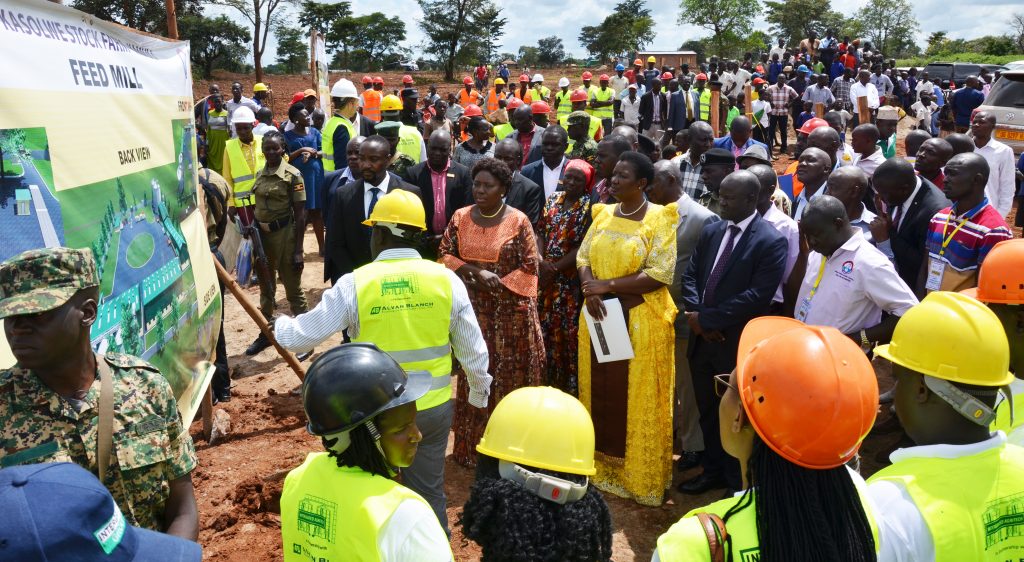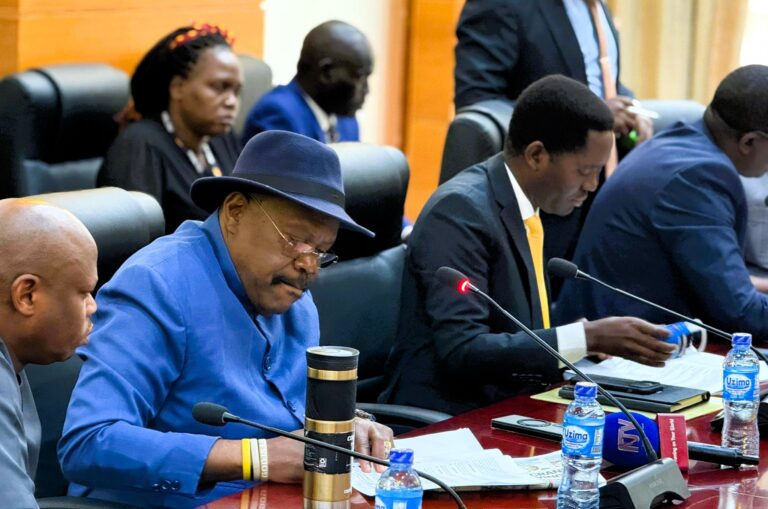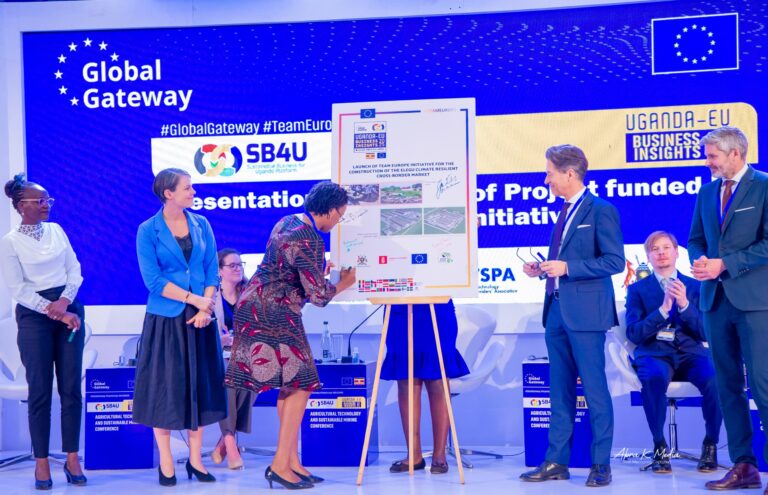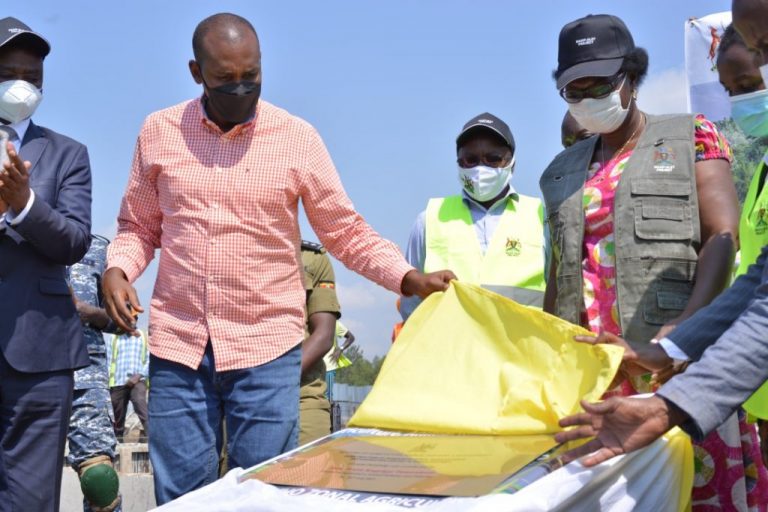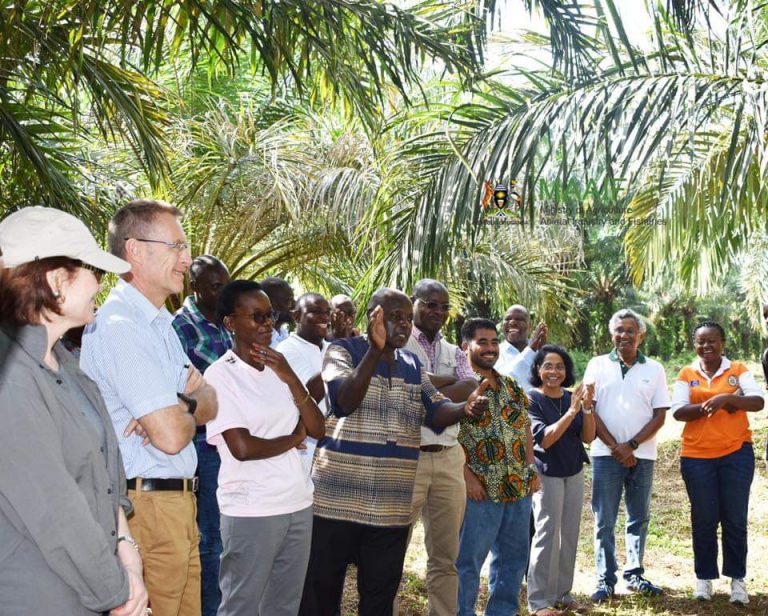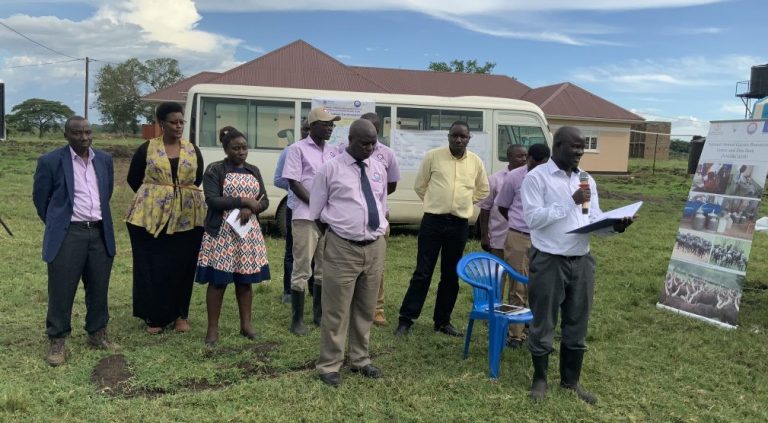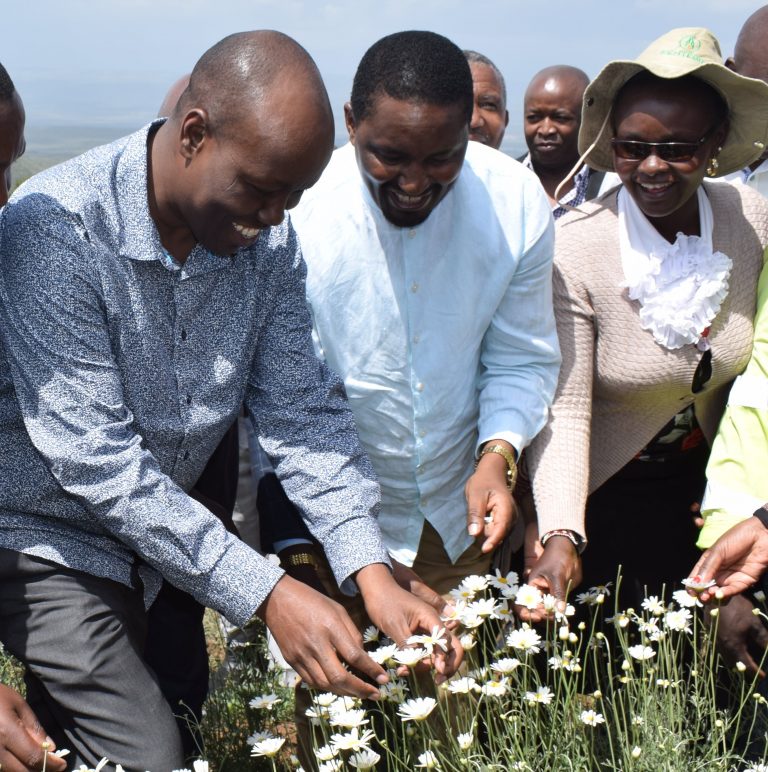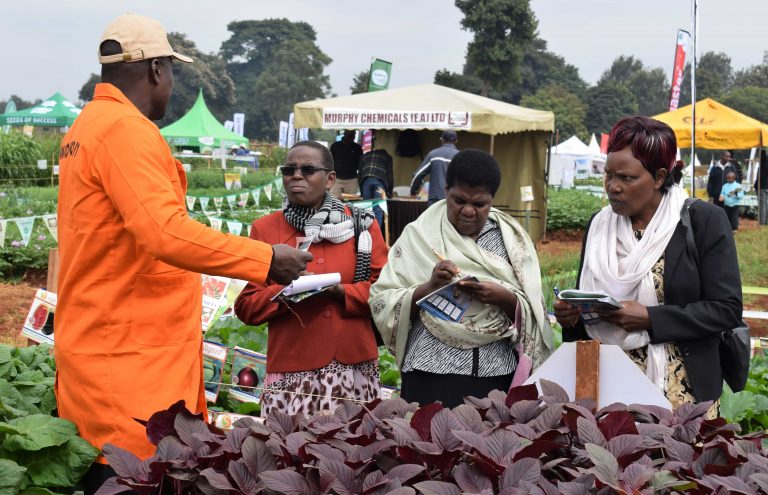Kasolwe Stock Ranch in Kamuli district has hosted the Ground-breaking for new livestock interventions for Busoga region officially done by Rt. Hon. Rebecca Kadaga the Speaker of Parliament, His Royal Highness Gabula Nadiope the King of Busoga, Hon. Esther Mbayo the Minister of the Presidency, Dr. Charles Lagu the Executive Director of the National Animal Genetic Resources Centre and Databank (NAGRC&DB) and Dr. Juliet Sentumbwe the Director for Animal Resources.
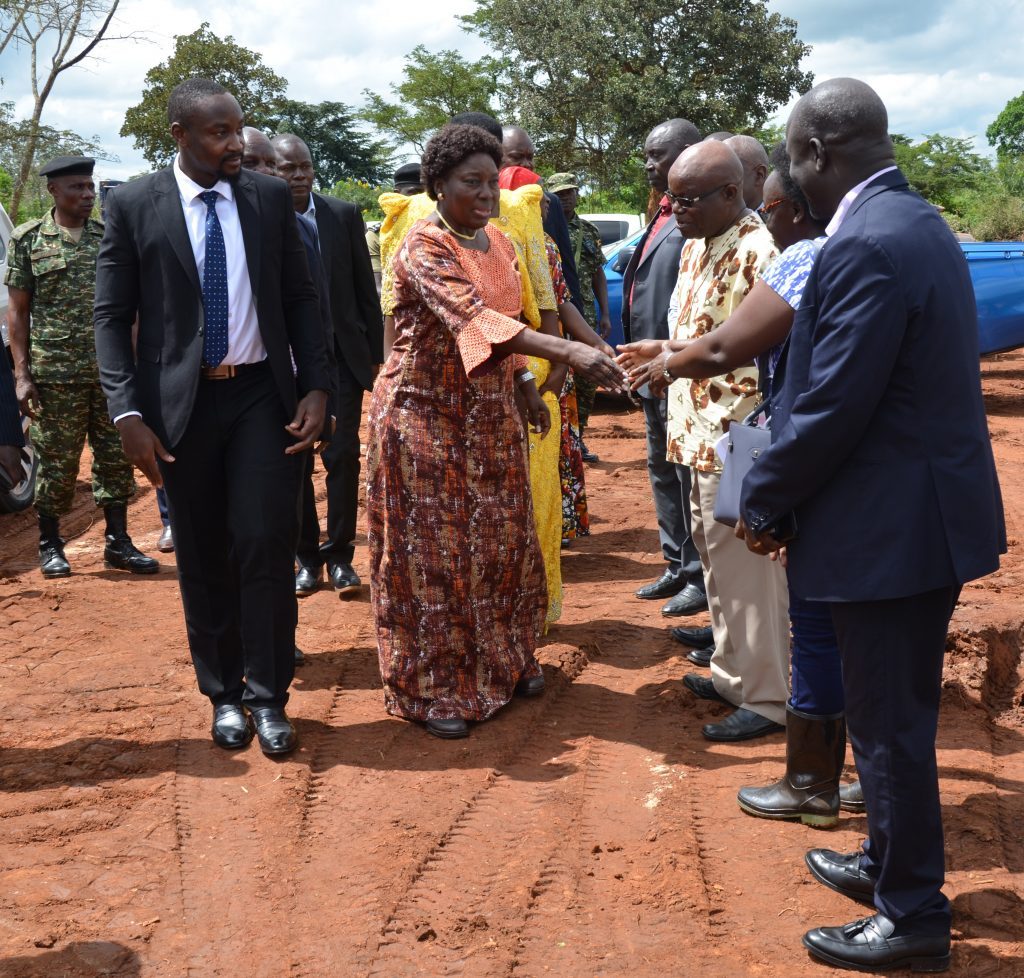
These initiatives will be channeled through Kasolwe Stock Ranch in Kamuli district which is undergoing upgrade to International Standards. The initiatives that are being channeled through the National Animal Genetic Resources Centre and Databank (NAGRC&DB) which is the livestock sub-sector Agency of the Ministry of Agriculture Animal Industry and Fisheries include the following and will be on the Ranch:
- Construction and of a Cattle Dip and Spay Race
- Design and Construction of a Hay Barn will improve carcass weight from the average 150 to more than 350 per animal and will also be used for demonstrating purposes where farmers in Busoga will learn novel approaches to animal husbandry specifically nutrition.
- Improvement of Water Reticulation System at Kasolwe Stock and Construction of 4 Valley dams and 6 Valley Tanks in Busoga Area. In order to supplement on-going livestock water supply initiatives in Busoga, the project will support the construction and/or rehabilitation of livestock watering facilities with a capacity of at least 300,000 cubic meters of water for watering a day.
The districts in the region will also benefit from the following.
- Establishment of a Centre of Learning and Excellency in Livestock Farming to boost knowledge sharing for increasing productivity in Busoga
- Construction of 4 Kilometres of Farm Roads
- Connecting the farm to the National Electricity Grid
- Procurement of a milk cooling system of 5,000 litres and investment in equipment to add value to milk as the farm will be producing Yoghurt, Cheese, Butter and other value added products.
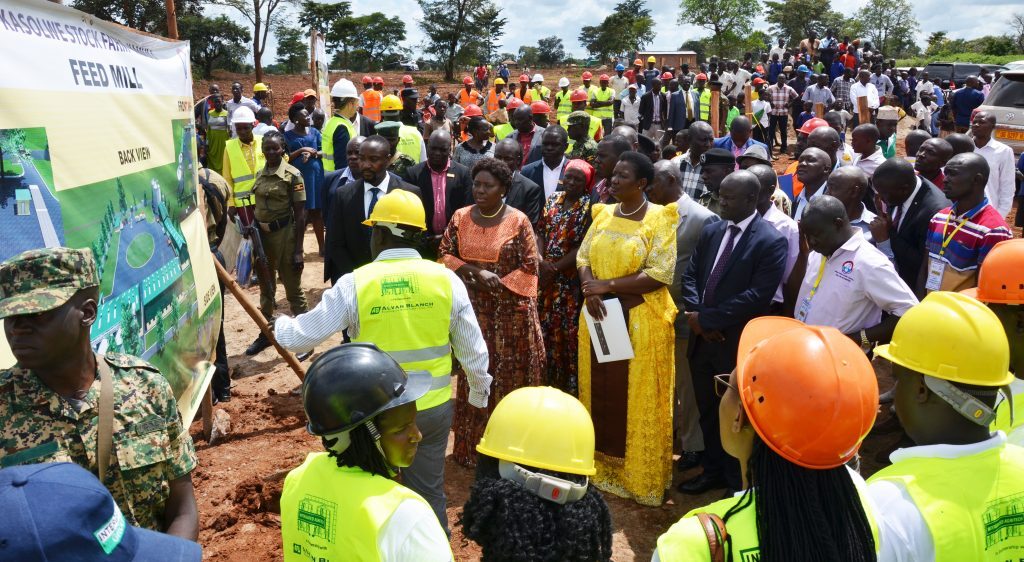
NAGRC&DB will also undertake:
- Procurement of a hatchery (100,000 egg capacity) and Brooder
- Establishment of a Fish Hatchery, 4 Brooder ponds, 20 Fish Ponds and 50 Fish Cage farms.
- Establishment of a modern piggery unit of 5,000 pigs complete with best breeds and production systems in the country.
- Introduction of 3,000 superior goats to the region
- Establishment of one model irrigation scheme to demonstrate the importance of irrigation in alleviating poverty and improving food security.
As livestock sub-sector Agency of the Ministry of Agriculture, Animal Industry and Fisheries, NAGRC&DB will also undertake the following.
- Introduction of Community Breeding Services in the 12 districts of greater Busoga Area
- Training of 100 Artificial Insemination at the sub-county level
- Introduction of Superior Breeds through Multiple, Ovulation and Embryo Transfers (MOET). Superior Cattle of preferred traits will be introduced in Busoga through MOET services. The Centre through NAGRC&DB will procure Embryos of superior genes and implant them in animals at the Centre Farm and also animals of some selected Nucleus farmers. The off springs will be animals of superior quality that will be a game changer in improving breeds in Busoga. 15,000 embryos will be procured for the above purposes.
The strategic plan that is being unpacked by NAGRC&DB also includes:
- Establishment of four Feedlots
- Support to Pasture Seed Production:The project will provide training and assistance to about a hundred (100) low-income farmers involved in farmers’associations to establish one hectare each for quality grass seed production and 300 farmers to establish 0.5 hectares each for quality legume seed production. In addition, each of the clients in the rangeland re-seeding scheme (300 farmers) and pasture improvement (500 farmers) scheme will be assisted to establish and maintain 0.5 hectares each for pasture seed multiplication. The project will provide contract pasture seed out growers with foundation seeds. These seed out growers will be contracted by private company.
- Rangelands Improvement: The project will assist 40 farmers selected on the basis of evident degraded rangelands in nine (4) districts to serve as demonstration plots for rehabilitation of the degraded areas by clearing and re-seeding of about 10 ha each with forage legumes and grasses. The project will adopt a mechanism for providing advisory services to livestock farmers.
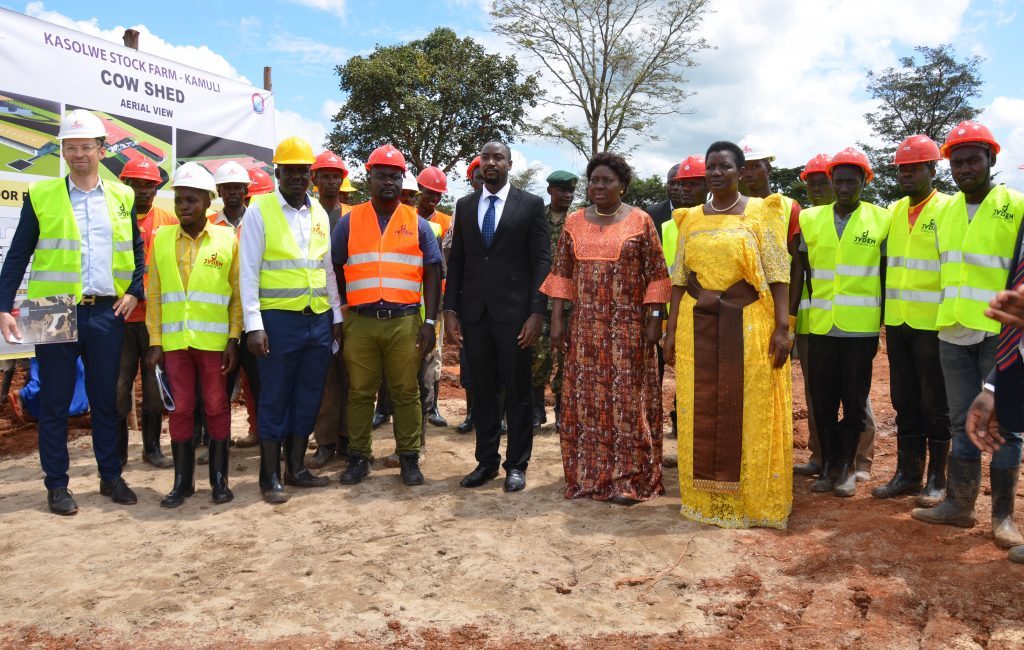
The districts are also set to receive:
- Support to Improved Dry Season Feeding: This will be carried outNAGRC&DB staff based at the Kasolwe Stock Ranch through farmdemonstrations, the project will sensitize, train and assist livestock farmers in silage making, hay making, dry season utilization of crop residues and formulation and use of locally available feed supplements.
- Improvement on the genetics of Small Ruminants – 2000 Superior quality goats and 1000 sheep both meat and dairy will be moved from Nshara, Ruhengere and Rubona to Kasolwe. They will be distributed to farmers to improve genetics of local goat breeds.
- Recruitment and facilitation of 12 Livestock Extension workers – The project will recruit and facilitate livestock extension workers as theprimary mechanism used to assist farmers in expanding their ability to adopt and implement new methods and to relay information to producers concerning new technologies in livestock farming.
- Collection/Dissemination of Livestock Marketing Information – The project will collaborate with the National Agricultural Advisory Services (NAADS) to collect, process and disseminate livestock marketing information and 12 District production and Trade Officers to assist in operating a sustainable livestock marketing information system.
- Training in Value-adding to Hides and Skins: The project will finance the training of 400 flayers and skinners in about 11 Districts where the project will be implemented.
Administrative units and 20 units of staff quarters will also be completed.
The rollout of livestock interventions has been targeted to suit the needs of each region of the country for address gaps and boost creation of jobs and employment especially for the youth and women.
The support for building sustainable enterprises is being provided through Business Incubation Management Support by the African Agribusiness Incubators Network which is a technical network of the African Union.


